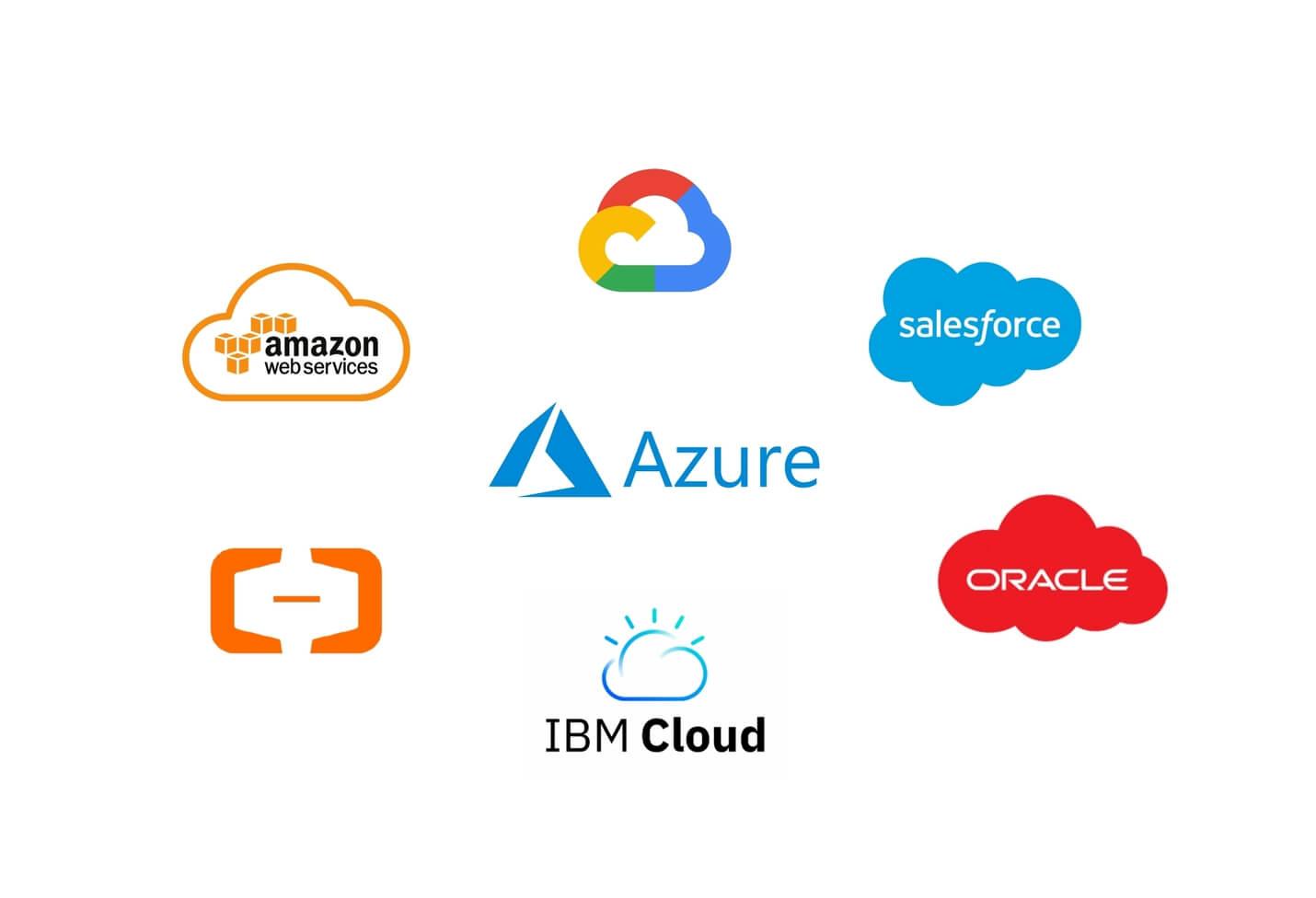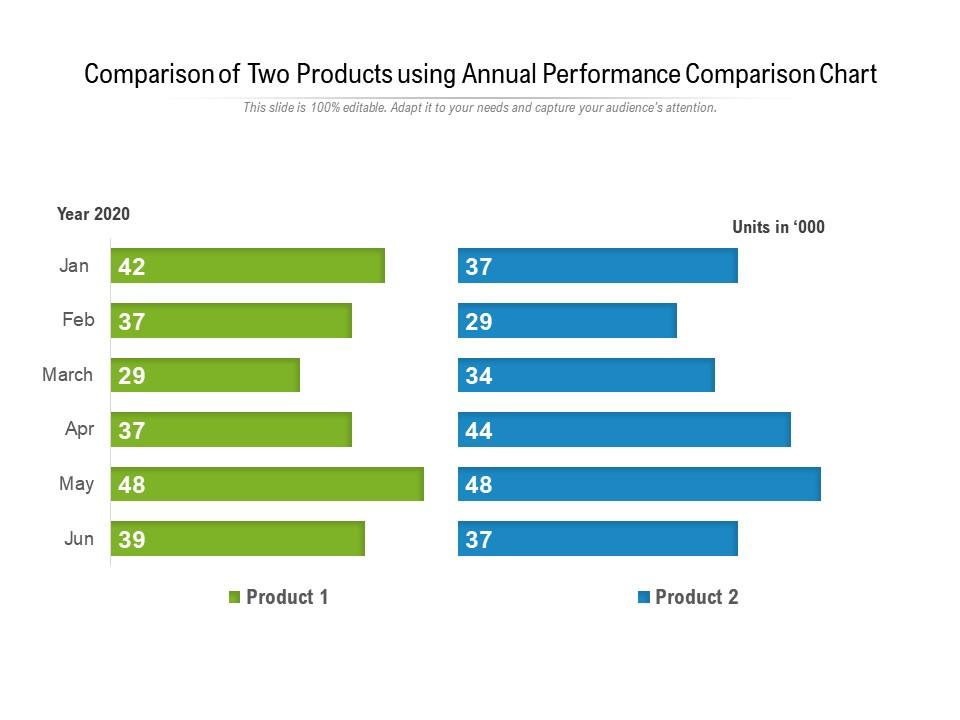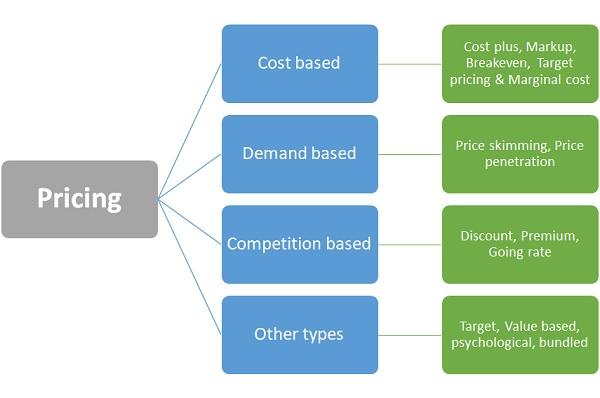In today’s digital landscape, choosing the right hosting provider is more crucial than ever. With the plethora of options available, making an informed decision can feel overwhelming. Enter our showdown between two prominent players in the hosting arena: OVH Cloud and WestHost. Whether you’re a budding entrepreneur, a seasoned web developer, or simply looking to enhance your online presence, understanding the strengths and weaknesses of these two services is essential for your success in 2024. In this guide, we’ll break down their offerings, performance, and customer support in a straightforward and engaging manner, so you can confidently select the best hosting solution for your needs. Let’s dive in and explore what each provider has to offer, ensuring you’re equipped to make the right choice for your digital journey!
Choosing the Right Cloud Provider for Your Needs
Choosing a cloud provider can feel like navigating a maze, especially with options like OVH Cloud and WestHost on the table. Each provider has its unique strengths, tailored to different business needs and workloads. To ensure you make the right decision, it’s essential to evaluate various factors that align with your objectives.
First, consider your budget. OVH Cloud is known for its competitive pricing and flexible plans, making it an attractive choice for startups and small businesses looking to optimize their expenses. On the other hand, WestHost often appeals to users seeking simplicity and all-inclusive packages, which can be beneficial if you prefer a straightforward pricing model without hidden fees.
Next, delve into the performance and scalability each provider offers. OVH Cloud boasts a robust infrastructure with high-performance servers, catering to businesses that anticipate rapid growth or require extensive resources. WestHost provides a reliable solution for those with smaller-scale needs, prioritizing ease of use over raw power. Understanding your current and future demands is crucial when weighing these options.
Another critical factor is customer support. Both OVH Cloud and WestHost offer support, but their approaches differ. OVH provides a mix of documentation and community support alongside ticketing systems, which might appeal to tech-savvy users. In contrast, WestHost emphasizes personalized customer service, making it a great choice if you prefer speaking to a representative when issues arise.
Lastly, consider the features and tools available to you. OVH Cloud provides a wide array of advanced features, including VMs, Kubernetes, and dedicated servers, ideal for developers and larger businesses. WestHost, while more limited in options, excels in user-friendly tools that simplify website management, making it perfect for those who prioritize convenience over complexity.
| Feature | OVH Cloud | WestHost |
|---|---|---|
| Pricing | Competitive & Flexible | Simple & All-inclusive |
| Performance | High-performance Servers | Reliable for Small-scale Needs |
| Customer Support | Community & Documentation | Personalized Support |
| Features | Advanced Tools & Scalability | User-friendly Management |
Exploring the Unique Features of OVH Cloud
When considering OVH Cloud, it’s essential to highlight the features that set it apart in the competitive cloud hosting landscape. Renowned for its robust infrastructure and flexibility, OVH Cloud offers solutions tailored to meet the diverse needs of businesses, from small startups to large enterprises. Here’s a closer look at its unique offerings:
- Global Network: With data centers strategically located around the world, OVH Cloud ensures low latency and high availability for users, regardless of their geographic location.
- Scalability: The ability to scale resources up or down seamlessly allows businesses to adapt quickly to changing demands without incurring unnecessary costs.
- Customizability: Users can tailor their cloud environments with a wide range of configurations, making it easy to deploy applications that meet specific requirements.
- Cost Efficiency: OVH Cloud delivers competitive pricing with a pay-as-you-go model, allowing businesses to manage their budgets effectively while accessing cutting-edge technology.
- Environmentally Friendly: Committed to sustainability, OVH Cloud invests in green technologies and practices, aiming for a reduced carbon footprint across its operations.
In terms of performance, OVH Cloud leverages high-performance hardware and a self-developed technology stack. This results in:
| Feature | Description |
|---|---|
| High Availability | Redundant systems ensure that services remain uninterrupted, even in the face of hardware failures. |
| Advanced Security | Multi-layered security measures protect data and applications from threats, ensuring peace of mind. |
| Comprehensive Support | 24/7 support from experienced professionals helps users troubleshoot issues and optimize their environments. |
Another standout feature is the integrated management interface, which simplifies the process of managing cloud resources. Users can monitor performance metrics, configure settings, and deploy applications with just a few clicks. This user-friendly approach lowers the barrier to entry for those who might not be tech-savvy, promoting widespread accessibility to advanced cloud solutions.
Moreover, OVH Cloud emphasizes open-source technologies, allowing users to leverage a wide array of tools and platforms. This commitment fosters a community-driven environment where users can share insights and innovate collaboratively, a significant advantage over other providers who may lock users into proprietary solutions.
WestHost: Affordable Solutions for Small Businesses
If you’re a small business owner seeking cost-effective hosting solutions, WestHost is an option worth considering. Known for its competitive pricing and user-friendly services, WestHost offers a variety of plans tailored to meet the diverse needs of small enterprises. The platform is particularly appealing for those who may not have extensive technical expertise, making it easy for anyone to get started online.
One of the standout features of WestHost is its affordable pricing structure. With plans starting as low as $3.95 per month, it provides excellent value, especially for startups and small businesses looking to minimize operational costs. This pricing model allows you to focus more on growing your business rather than worrying about hefty monthly bills. Here’s a quick comparison of their basic offerings:
| Plan | Monthly Cost | Storage | Bandwidth |
|---|---|---|---|
| Basic | $3.95 | 10 GB | Unlimited |
| Pro | $6.95 | 50 GB | Unlimited |
| Business | $9.95 | 100 GB | Unlimited |
In addition to affordability, WestHost offers robust customer support. Their dedicated support team is available 24/7, ensuring that you can get help whenever you need it. This is particularly crucial for small business owners who may find themselves facing unexpected technical challenges. With their live chat, phone support, and extensive knowledge base, you can resolve issues quickly and efficiently, allowing you to focus on what truly matters—running your business.
Scalability is another key advantage of choosing WestHost. As your business grows, you can easily upgrade your hosting plan to accommodate increased traffic and additional resources. This flexibility means you won’t have to switch providers as your needs evolve, saving you time and hassle in the long run. Moreover, the platform integrates seamlessly with various tools and applications, providing you with everything you need to succeed online.
WestHost stands out as a solid choice for small businesses seeking an affordable and reliable hosting solution. Its combination of low-cost plans, exceptional customer service, and scalability makes it a compelling alternative to providers like OVH Cloud. Whether you’re just starting out or looking to expand your existing operations, WestHost offers the support and resources to help you thrive in today’s digital landscape.

Performance Comparison: Speed and Reliability
When it comes to choosing a hosting provider, the speed and reliability of the service can make or break your online presence. Both OVH Cloud and WestHost offer robust solutions, but they cater to different needs and preferences. Let’s delve into what sets them apart in this crucial aspect.
OVH Cloud boasts an impressive global infrastructure, with data centers strategically located around the world. This network enables them to provide low latency and high-speed connections. Their use of advanced technologies like SSD storage and optimized caching means that users can expect faster loading times, which is essential for keeping visitors engaged. In contrast, WestHost, while reliable, has a more limited reach, which can sometimes lead to higher latency for users located farther from their servers.
In terms of uptime, both providers are committed to delivering consistent service. OVH Cloud typically reports an uptime of 99.99%, thanks to its redundant systems and proactive monitoring. This means that your site is less likely to experience downtime, which can be detrimental to user experience and SEO rankings. On the other hand, WestHost also offers a commendable uptime guarantee, hovering around 99.9%. However, this slight difference could be significant for businesses that rely heavily on their online operations.
Here’s a quick comparison to visualize the differences:
| Feature | OVH Cloud | WestHost |
|---|---|---|
| Global Data Centers | Yes | Limited |
| Average Uptime | 99.99% | 99.9% |
| Loading Speed | Very Fast | Moderate |
Another vital aspect of performance is scalability. OVH Cloud’s flexible plans allow businesses to easily scale resources according to their needs, ensuring that as your traffic grows, your performance remains uncompromised. WestHost, while offering scalability, may not provide the same level of flexibility in resource allocation, making it less ideal for rapidly growing businesses.
when evaluating performance through the lenses of speed and reliability, OVH Cloud stands out as the more robust option. However, WestHost can still be a viable choice for smaller projects or users who prioritize simplicity and ease of use. Ultimately, the decision should align with your specific requirements and goals.
Customer Support Showdown: Which Provider Has Your Back?
When it comes to choosing a cloud provider, customer support can make all the difference. With OVH Cloud and WestHost both vying for your attention, it’s essential to weigh their support offerings against what your business needs. Let’s dive into what each provider has to offer, so you can make an informed decision.
OVH Cloud prides itself on a robust support infrastructure designed to assist users around the clock. Their support options include:
- 24/7 Technical Support: Always available to help troubleshoot and resolve issues.
- Knowledge Base: A comprehensive library packed with tutorials and guides.
- Community Forums: Interact with other users to share experiences and solutions.
- Custom Support Plans: Tailored options for businesses with unique requirements.
On the other hand, WestHost focuses on providing personalized customer service. Their support features include:
- Live Chat: Quick responses from support staff for immediate assistance.
- Email Support: Efficient communication for non-urgent queries.
- Phone Support: Speak directly with a knowledgeable representative.
- Dedicated Account Managers: Personalized support for businesses that require more hands-on assistance.
| Feature | OVH Cloud | WestHost |
|---|---|---|
| 24/7 Support | ✔️ | ✔️ |
| Live Chat | ❌ | ✔️ |
| Phone Support | ✔️ | ✔️ |
| Dedicated Managers | ❌ | ✔️ |
| Community Forums | ✔️ | ❌ |
Ultimately, your choice will depend on your specific needs. If you prioritize immediate assistance and a more personalized touch, WestHost might be the better fit. However, if you value a wealth of resources and community support, OVH Cloud could be the way to go. Weigh these options carefully, as the right customer support can significantly enhance your cloud experience in 2024 and beyond.

Security Measures: Protecting Your Data in the Cloud
In today’s digital landscape, protecting your sensitive data is paramount, especially when you’re utilizing cloud services like OVH Cloud and WestHost. Both platforms offer robust security measures, but understanding their specific approaches can help you make an informed decision that aligns with your business needs.
Encryption is a fundamental aspect of cloud security. OVH Cloud employs encryption both at rest and in transit, ensuring that your data remains secure during storage and while being transmitted. This dual-layer approach minimizes the risk of unauthorized access. On the other hand, WestHost also implements strong encryption protocols, but their emphasis on user-friendly configuration is a significant advantage for those who may not be as tech-savvy. This means you can easily enable encryption without having to navigate complex settings.
Another critical element is access controls. OVH Cloud provides advanced access management features, allowing you to define who can access your data and what permissions they have. This granular control is essential for organizations that handle sensitive information. WestHost, while slightly less customizable in this area, offers straightforward access options that may appeal to small businesses looking for simplicity without sacrificing security.
Both providers also emphasize regular security audits. OVH Cloud conducts periodic assessments to identify vulnerabilities and enhance their infrastructure, while WestHost prioritizes routine updates to their systems, ensuring that the latest security patches are applied promptly. This proactive approach to security helps mitigate risks associated with emerging threats.
Lastly, consider the support and resources available to you. OVH Cloud offers extensive documentation and a dedicated support team to assist with any security-related concerns, ensuring you never feel alone in managing your data’s safety. WestHost, conversely, provides a more hands-on approach with personalized support options, helping you implement best practices tailored to your unique requirements.
| Feature | OVH Cloud | WestHost |
|---|---|---|
| Encryption | At rest & in transit | User-friendly configuration |
| Access Controls | Advanced management | Simplified options |
| Security Audits | Periodic assessments | Routine updates |
| Support | Extensive documentation | Personalized assistance |

Scalability Options: Growing Your Business with Confidence

User Experience: Navigating the Interfaces of OVH Cloud and WestHost
When diving into the world of cloud hosting, the user experience can significantly impact your operations. Both OVH Cloud and WestHost offer unique interfaces that cater to different user needs and preferences. Understanding how each platform navigates its interfaces will help you make an informed decision in 2024.
OVH Cloud prides itself on a modern, intuitive dashboard that caters to tech-savvy users. With a focus on scalability and flexibility, the interface allows users to:
- Quickly deploy servers with a few clicks.
- Track resource usage and performance metrics in real-time.
- Access a wide variety of cloud services directly from the dashboard.
The learning curve may be steeper for those unfamiliar with cloud technologies, but the extensive documentation and community forums provide robust support.
On the other hand, WestHost offers a more simplified user experience, making it ideal for small businesses or users who prefer straightforward functionality. The interface features:
- A clean, minimalist design that emphasizes ease of navigation.
- Easy access to website management tools, such as domain registration and email settings.
- Integrated support options that allow users to connect with customer service seamlessly.
This user-friendly approach can significantly reduce the time spent managing hosting tasks, enabling users to focus more on their core business activities.
When comparing the two, consider the specific needs of your business. If you require advanced features and scalability, OVH Cloud’s complex interface might be worth the investment in learning. However, for users seeking simplicity and efficiency, WestHost provides a straightforward path to managing web presence without the headache of steep learning curves.
| Feature | OVH Cloud | WestHost |
|---|---|---|
| Interface Complexity | Moderate to High | Low |
| Target Users | Developers & Enterprises | Small Businesses & Individuals |
| Support Resources | Extensive Documentation | Integrated Customer Support |
| Customization Options | Highly Customizable | Basic Customization |
Ultimately, your choice between OVH Cloud and WestHost should align with your technical capabilities and hosting needs. Evaluate how each platform’s interface supports your workflow to ensure a smooth and productive experience.

Pricing Structures: Finding the Best Value for Your Budget
When it comes to choosing a cloud hosting provider, understanding the pricing structures is key to ensuring you get the best value for your budget. Both OVH Cloud and WestHost offer a range of services tailored to different needs, but their pricing models can vary significantly. Let’s break down what each provider offers to help you make an informed decision.
OVH Cloud is known for its competitive pricing, particularly for larger resource allocations. Their tiered pricing structure allows users to select plans based on their specific needs, which can lead to substantial savings. Here are some highlights:
- Pay-As-You-Go Model: Flexibility in billing, allowing you to pay only for what you use.
- Discounts for Annual Commitments: Significant savings if you opt for annual billing instead of monthly.
- Free Migration Services: Reduces the initial cost if you’re moving from another provider.
On the other hand, WestHost has a more straightforward pricing approach, which can be appealing for those who prefer simplicity. They offer bundled packages that include essential features, making it easy to understand the overall cost. Consider these aspects:
- All-Inclusive Pricing: No hidden fees; what you see is what you pay.
- Flexible Billing Cycles: Options for monthly or annual payments to suit your cash flow.
- Free Domain Registration: An attractive bonus for new customers, adding value to the overall package.
| Feature | OVH Cloud | WestHost |
|---|---|---|
| Starting Price | $3.49/month | $4.99/month |
| Free Migration | Yes | No |
| Annual Discounts | Up to 20% | None |
| Domain Registration | $10/year | Free |
Ultimately, the right choice will depend on your specific needs and budget. If you require more resources and are looking for flexibility, OVH Cloud might provide you with substantial savings. Conversely, if you prefer a straightforward approach with all-inclusive pricing, WestHost could be the better option. It’s essential to analyze your requirements and compare the features that matter most to you before deciding.

Final Thoughts: Making the Switch or Staying Put?
When weighing the decision between OVH Cloud and WestHost, it’s essential to consider what truly matters for your specific needs. Each platform has its strengths and weaknesses, making the choice more about aligning their offerings with your goals rather than outright superiority. Below are some factors to contemplate:
- Performance: Both providers have established reputations for robust performance, but OVH Cloud often edges ahead with its extensive network of data centers and cutting-edge technology.
- Pricing: If budget is a primary concern, WestHost may appeal with competitive pricing structures, particularly for small to medium-sized businesses looking for affordable hosting solutions.
- Support: Consider the quality and availability of customer support. OVH Cloud offers comprehensive support options, which can be a lifesaver during critical moments.
- Scalability: For businesses anticipating growth, OVH Cloud provides more scalable options, allowing you to upgrade resources seamlessly as your needs evolve.
Additionally, examining the user experience can provide valuable insights. OVH Cloud may seem daunting for beginners due to its extensive features, whereas WestHost shines with a user-friendly interface and simpler management tools. This ease of use can be a deciding factor for those who prefer a more straightforward approach.
| Feature | OVH Cloud | WestHost |
|---|---|---|
| Performance | High | Moderate |
| Pricing | Moderate to High | Low to Moderate |
| Customer Support | 24/7 Availability | Business Hours |
| Scalability | Highly Scalable | Limited Options |
Ultimately, the decision to switch or stay with your current provider hinges on your unique requirements. If you’re content with your current setup and it meets your needs, there may be little reason to change. However, if you’re seeking enhanced performance, scalability, or specialized features, OVH Cloud could be the perfect fit. Evaluate your long-term goals and don’t hesitate to reach out to both providers for consultations to ensure you make the most informed choice possible.
Frequently Asked Questions (FAQ)
Q&A: OVH Cloud vs WestHost – Your Guide for 2024
Q1: Why should I care about OVH Cloud and WestHost in 2024?
A1: Great question! As businesses and individuals increasingly depend on online services, choosing the right hosting provider has become crucial. OVH Cloud and WestHost each offer unique features and pricing models that cater to a range of needs. Understanding their strengths can help you make an informed decision that aligns with your goals in 2024.
Q2: What are the main differences between OVH Cloud and WestHost?
A2: OVH Cloud is well-known for its robust cloud solutions, scalability, and global data centers, making it ideal for businesses looking for flexibility and high performance. On the other hand, WestHost focuses on shared hosting and offers affordable plans that are perfect for small businesses and personal websites. If you’re just starting out, WestHost might be the budget-friendly choice, while OVH Cloud is more suited for those needing enterprise-level resources.
Q3: Which hosting provider is better for scalability?
A3: If scalability is your top priority, OVH Cloud is the winner. Their cloud infrastructure allows you to easily scale resources up or down based on your needs. This is particularly beneficial for growing businesses or projects that experience fluctuations in traffic. WestHost, while solid for smaller projects, doesn’t offer the same level of scalability.
Q4: How does pricing compare between OVH Cloud and WestHost?
A4: Pricing is one of the key factors that make these two providers attractive. WestHost generally has lower starting prices, which is appealing for new businesses or personal projects. However, OVH Cloud, while potentially more expensive, offers a diverse range of services that provide value for larger enterprises. It’s all about what you need — budget or advanced features!
Q5: What about customer support? How do they stack up?
A5: Both OVH Cloud and WestHost offer customer support, but they do so in different ways. WestHost is often praised for its friendly and accessible support team, which is ideal for newcomers. OVH Cloud, while having a comprehensive support system, may be more suited for users with technical expertise who can navigate their extensive resources. If you value immediate, personalized support, WestHost might be your best bet.
Q6: Are there any hidden costs I should be aware of?
A6: Transparency in pricing is crucial, and it’s wise to read the fine print! OVH Cloud may have additional costs for certain features like backups or advanced support, so be sure to factor those into your decision. WestHost’s pricing is generally straightforward, but it’s always good to check for any renewal fees or limits on resources.
Q7: Which provider is better for security?
A7: Security is critical for any online presence. OVH Cloud offers advanced security features, including DDoS protection and comprehensive data encryption. If your business handles sensitive information, OVH Cloud is the way to go. WestHost provides security measures typical for shared hosting but may not have the same level of protection as OVH.
Q8: which provider is right for me?
A8: The answer depends on your specific needs! If you’re a small business or an individual looking for an affordable, straightforward hosting solution, WestHost is a fantastic choice. However, if you’re planning to scale or need robust features and security, OVH Cloud is your best bet. Take the time to evaluate what you truly need from your hosting provider in 2024, and you’ll find the perfect match for your online journey!
Feel free to explore more about each provider to see which one aligns best with your goals — happy hosting!
Concluding Remarks
As we wrap up our deep dive into the world of OVH Cloud and WestHost, it’s clear that both providers have unique strengths that cater to different needs. Whether you’re a startup looking for scalable solutions, a seasoned business needing robust infrastructure, or a personal project requiring straightforward hosting, the right choice is just a few clicks away.
Remember, choosing a cloud provider is more than just comparing features and prices; it’s about finding a partner that aligns with your goals and supports your growth. OVH Cloud shines with its expansive global network and flexibility, while WestHost offers user-friendly plans and excellent customer support.
Take the time to assess your specific requirements, consider your budget, and envision your future needs. With the insights provided in this guide, you’re now equipped to make an informed decision that will steer your online presence in the right direction for 2024 and beyond.
So, which provider will you choose? Whichever path you take, ensure it’s one that not only meets your current demands but also positions you for success in an ever-evolving digital landscape. Happy hosting!
